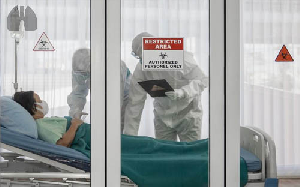
Extract
Recently, the World Health Organization (WHO) released the updated guideline on the treatment for multi-drug resistant tuberculosis (MDR-TB) treatment regimens based on new experimental and observational evidence [1]. In this new guidance the most important drugs are the late-generation fluoroquinolones (i.e., levofloxacin and moxifloxacin), linezolid, and bedaquiline. Despite the new guidance MDR- and extensively drug resistant (XDR) TB treatment is challenging due to the risk of drug-related adverse events (AE) and drug-drug interactions (DDI). Precision medicine-based approach to minimise the risk of resistance emergence and amplification and to provide patients with the highest standard of care has been recommended [2].
Footnotes
This manuscript has recently been accepted for publication in the European Respiratory Journal. It is published here in its accepted form prior to copyediting and typesetting by our production team. After these production processes are complete and the authors have approved the resulting proofs, the article will move to the latest issue of the ERJ online. Please open or download the PDF to view this article.
Conflict of interest: Dr. Alffenaar has nothing to disclose.
Conflict of interest: Dr. Akkerman has nothing to disclose.
Conflict of interest: Dr. Tiberi has nothing to disclose.
Conflict of interest: Dr. Sotgiu has nothing to disclose.
Conflict of interest: Dr. Migliori has nothing to disclose.
- Received September 26, 2019.
- Accepted October 24, 2019.
- Copyright ©ERS 2019














